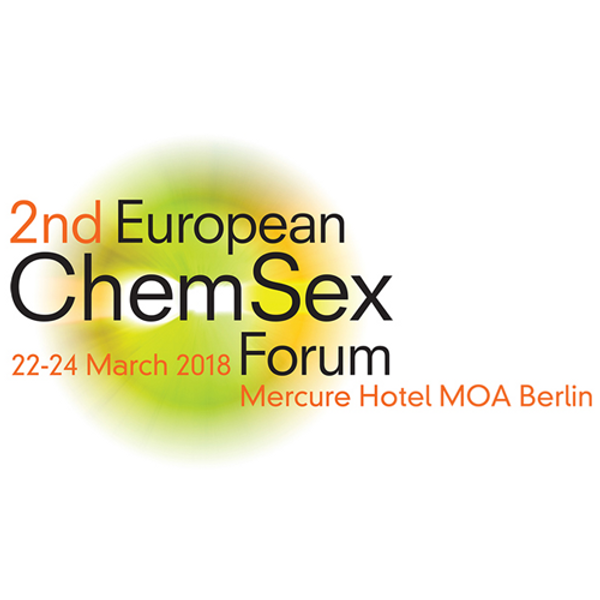2nd European ChemSex Forum
Building on the 2016 European ChemSex Forum, a preliminary intelligence gathering and networking event, the 2nd European ChemSex Forum will call for concrete actions at the local level to provide strategic resources to ChemSex responders. Working together, we'll develop a platform to engage in international, cross-sector, multi-disciplinary dialogue around ChemSex – defined by the use of specific drugs ("Chems") in a sexual context - and facilitate coordinated responses to ChemSex issues in locales where ChemSex related harm is a problem, regardless of its size and impact.
Some clear guiding principles will inform the 2nd Forum:
- The Forum focus is on problematic ChemSex, not drug use and sex per se. Problematic ChemSex is defined, as such, by the individual in interaction with his peers and care providers.
- As a group the conference planners recognise that various harms related to ChemSex are occurring, including HIV, hepatitis and co-infections, STIs, drug overdoses, depressions, rapes, and deaths. Our work is to address those harms forthrightly, not make generalisations about drug use or sexual behaviour.
- The pre-Forum activities and the Forum programme will focus on 3 key work areas: therapeutic responses, team building and information gathering.
While ChemSex responders and concerned service and care providers have been able to encourage practical responses to ChemSex trends in some key cities in Europe, overall the response to ChemSex has not kept pace with its developing impact across Europe. ChemSex "mature" cities like London, Paris and Amsterdam are mounting joined-up responses from both community and health services. Not so much in other cities however, where ChemSex and its harms are still not fully acknowledged as a normal part of life in their gay communities.
The Forum will take place over three days, starting with a training day for up to 70 frontline staff from the WHO European region, including Central Asia and the Caucasus regions and followed by two days of presentations and discussions for up to 250 participants.
The training day will provide plenaries on ChemSex drugs and sexual experiences, risk assessment, models of behavioural change and safe injecting and an afternoon introduction to motivational interviewing. The following 2 days will report on therapeutic responses, feature the latest data on problematic ChemSex and workshops on multidisciplinary team building and information gathering.
The Forum will include presentations, panels, workshops and poster displays allowing participants to engage in rigorous information exchange. The community and services response will be highlighted with community and service information stands. Evening events, demonstrating the European response to ChemSex, will take place over three evenings.
By the end of the Forum participants should have:
- Improved understanding of the benefits of a range of therapeutic responses
- The tools to develop or improve team building, possible team members, appropriate to their locale
- The tools to develop or improve information gathering appropriate to their locale.
The activities from the Forum and related activities will be detailed in the Forum report along with the Forum evaluation and publicized on the online European ChemSex Forum groups.io.
Who should participate?
We encourage a wide range of participants: Frontline staff and sexual health staff; community organisations, drug and counselling services; policy makers, health commissioners and community leaders; people who use Chems, service users and community activists; researchers, volunteers, and members of the community, including racial minorities, trans people and non-binary people, migrants, sex workers, etc.
Attendance at the meeting is free of charge. Places are limited, however, so registration does not automatically guarantee a place. The organizers are aiming to achieve a wide spread of both geographical and speciality representation at the meeting.
Forum Scholarship Fund
This year we are proud to announce the creation of a Forum Scholarship Fund. The Fund will raise money to offset travel and accommodation expenses for Russian-speaking panelists and attendees who otherwise could not afford to attend the Forum, therefore encouraging participation from Eastern Europe, Central Asia and the Caucasus regions.
For more information, please visit the Forum's website.
